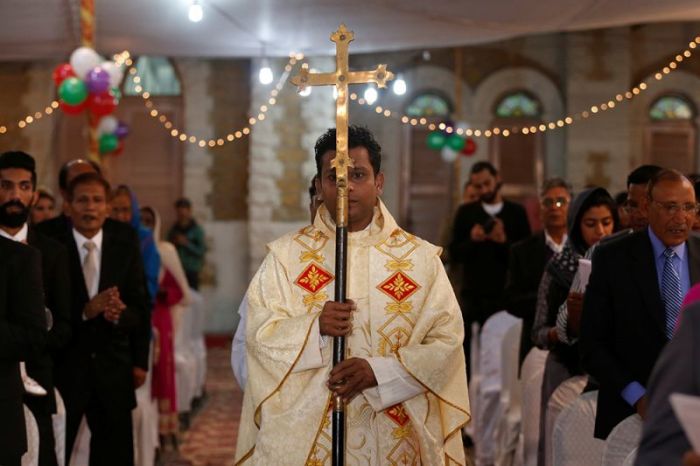South Asian nations deploy tactics to thwart conversions to Christianity, minority faiths: Report

Countries in South Asia are increasingly employing various tactics to stop people from converting to Christianity and other minority faiths in the region, a report has warned.
The United States Commission on International Religious Freedom released on Tuesday its latest report, arguing that such prohibitions have grown over the past decade in several South Asian countries, including India, Pakistan, Nepal, Bangladesh and others.
The report explained that India, for instance, uses state legislatures to limit cases where people choose to convert from Hinduism. Christian pastors and churches have been attacked in rural areas for years, often accused of carrying out forced conversions, which they deny, several watchdog groups have warned.
In Pakistan, the government was accused of continuing to use blasphemy laws meant to protect Islamic sensitives as a means to accuse Christians and other minorities of crimes and deter them from leaving the Muslim faith.
In Nepal, officials were found to be cracking down on nongovernmental organizations, particularly foreign missionary groups, for fear they might lead people away from the Hindu-majority religion.
A significant problem in Bangladesh was identified as forced marriages, especially when it comes to Hindu women being forced to change their religion and marry Muslims.
“Anti-conversion laws are frequently abused by extremists who seek to prevent anyone from leaving the majority religion,” said USCIRF Commissioner Nadine Maenza.
“These laws abrogate the religious freedom rights of minority communities, such as Hindus in Pakistan or Christians in Nepal, and as such they should be rescinded.”
USCIRF Commissioner Tony Perkins said that such laws "are a major obstacle to efforts pursuing peace and tolerance among those of different faith as extremist and majority religious groups use these laws as tools to intimidate and prevent religious minorities from exercising their right to freedom of religion and freedom of conscience."
He added, “These laws also disproportionately affect vulnerable and disfavored groups, such as Dalit Hindus and foreign humanitarian and aid workers.”
One of the most famous cases of Pakistan's blasphemy laws concerns Christian mother of five Asia Bibi, who spent eight years on death row after being accused of insulting the Islamic prophet Muhammad, something which she denied.
Bibi was finally acquitted by the Pakistani Supreme Court in October and granted her freedom, though she and her family still await asylum and are fearing for their safety.
In its conclusions, USCIRF urged for governments in South Asia to look for patterns of false accusations of unethical conversions, especially when religious minorities are concerned.
It called on state actors to "properly investigate and punish those acts."
"Societal actors also need to ensure that social pressure is not applied to individuals who consensually wish to change faiths," it added.
Among its recommendations to the U.S. government, USCIRF called for the organization of a regional conference to bring together activists, provincial politicians, police, judges, and attorneys working on religious freedom.
“The goal of this roundtable would be to recognize regional trends that can be addressed with cooperative efforts by stakeholders at various levels in each country,” it explained.




























